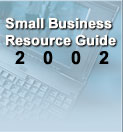 |
| |
| |
| |
| |
| |
| |
| |
| |
| |
| |
| |
| |
| |
| |
| |
|
Starting Your Business/Keeping Tax RecordsWhat Are Business AssetsBasis for AssetsProperty used in the conduct of a trade or business, such as business machinery and office furniture. Basis of Assets. Your cost or purchase price of property is usually its basis for figuring gain or loss from its sale or other disposition. However, if you got the property by gift, inheritance, or in some way other than buying it, you must use a basis other than its cost. For more information about basis, Publication 551, Basis of Assets. Adjusted basis. The adjusted basis of your property is your original cost or other basis plus certain additions, and minus certain deductions such as depreciation and casualty losses. Depreciation. Depreciation is a loss in the value of property over the time the property is being used. Events that can cause property to depreciate include wear and tear, age, deterioration, and obsolescence. You can get back your cost of certain property by taking deductions for depreciation. This includes equipment you use in your business or for the production of income by taking deductions for depreciation. If property you acquire to use in your business has a useful life of more than one year, you generally cannot deduct the entire cost as a business expense in the year you acquire it. You must spread the cost over more than one tax year and deduct part of it each year. When Depreciation Begins and Ends Modified Accelerated Cost Recovery System (MACRS) Sale or Other Disposition of Assets. A sale is a transfer of property for money or a mortgage, note, or other promise to pay money. An exchange is a transfer of property for other property or services. Ordinary or Capital Gain or Loss for Business Property Forms to file. When you dispose of property, you will
usually have to file one or Schedule
D (Form 1040), Capital Gains and Losses.
Important References: Publication
551
Basis of Assets |